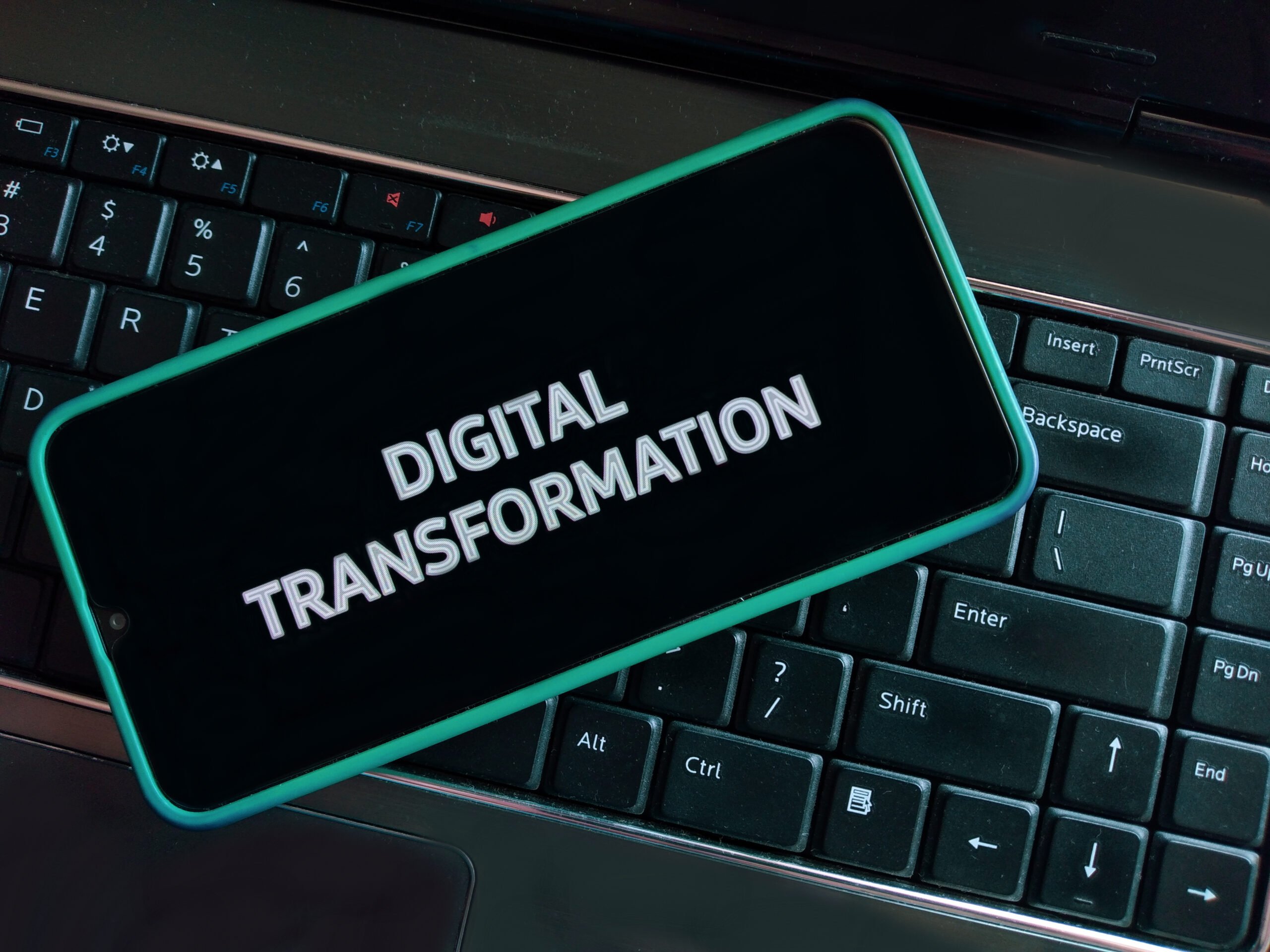Top 12 Technologies Used for Digital Transformation

Indian businesses are rapidly embracing digital tools to connect with their audiences. Furthermore, the Indian government’s commitment to implementing cutting-edge technologies across sectors is speeding up the digital transformation process in India. However, to modernize and enhance business operations, having the appropriate tools and technologies is crucial. In this article, therefore, we explore 12 digital transformation technologies that companies can use to improve their transformation efforts.
In this blog, you’ll learn:
- Cloud Computing
- Artificial Intelligence
- Internet of Things
- Big Data and Analytics
- Blockchain
- Robotic Process Automation
- Cybersecurity
- 5G Technology
- Augmented and Virtual Reality
- Digital Twin
- Edge Computing
- Quantum Computing
- Frequently Asked Questions (FAQs)
What are the Most Crucial Technologies for Digital Transformation?
 1. Cloud Computing
1. Cloud Computing
Cloud computing stands as one of the pivotal digital transformation technologies. It offers scalability, flexibility, and cost-efficiency that empower organizations to evolve rapidly. By migrating to the cloud, businesses can reduce infrastructure costs and achieve unparalleled agility.
Cloud computing allows companies to quickly access applications and data stored remotely via the Internet. Netflix was one of the first companies to transition to Amazon Web Services (AWS) and cloud computing. The demand for Netflix’s streaming services is rapidly growing. In India, the streaming platform has 8 to 10 million paid subscribers, which means that an enormous amount of data is being stored on Amazon and other cloud providers. These cloud computing platforms allow the streaming platform to use on-demand computer capacity, storage, and other services to store and transmit their data safely. This demonstrates how cloud computing serves as the backbone of digital transformation trends, facilitating innovation and growth.
2. Artificial Intelligence (AI)
AI has taken the business world by storm, and for good reason. Its immense potential has led to the development of chatbots, virtual assistants, and recommendation engines, enhancing customer interactions. Moreover, AI-driven solutions enable data-driven decision-making and provide exceptional customer experiences. According to the International Data Corporation’s (IDC) Worldwide Artificial Intelligence Spending Guide, global spending on AI-centric systems will reach $154 billion in 2023, a 26.9% increase over 2022.
3. Internet of Things (IoT)
The Internet of Things (IoT) has opened doors to unprecedented connectivity and data generation. IoT devices like smart wearables, smartphones, and sensor systems collect and transmit data, enabling businesses to make informed decisions. Industries such as agriculture and logistics leverage IoT devices for real-time tracking, ensuring efficient supply chain operations. These devices exemplify how data-driven insights lead to transformative changes.
4. Big Data and Analytics
The ability to process and analyze vast amounts of data is one of the important pillars of digital transformation trends. Big data and analytics tools offer businesses actionable insights, enabling them to optimize operations and make informed decisions. Zara is a perfect example of how big data analytics can revolutionize retail. The brand spends very little on advertising, and still, its customers visit their store multiple times a year. All thanks to data analytics.
Zara captures data through different Point of Sale (POS) terminals, e-commerce sales, customer surveys, Personal Digital Assistant (PDA) devices, and Radio Frequency Identification (RFID) tags on the clothing. Moreover, the staff at the stores is trained to capture customer preferences on their PDA devices. The data collected from these sources is then analyzed to optimize inventory management, improve customer experiences, and enhance supply chain efficiency.
ALSO READ: What is Digital Transformation and Why is It important?
5. Blockchain
Blockchain technology enhances trust and transparency in all kinds of transactions through its decentralization, immutable records, consensus mechanisms, and public accessibility. It is particularly significant in industries requiring secure and tamper-proof record-keeping, such as finance and health care. For instance, blockchain can be used in supply chain management to track products from source to consumer, reducing fraud and ensuring product authenticity. Blockchain is indeed a game-changer in the digital transformation landscape.
6. Robotic Process Automation (RPA)
Robotic Process Automation streamlines repetitive tasks, boosting efficiency and reducing errors. Organizations adopt RPA to automate tasks like data entry, invoice processing, and customer support. The health-care industry has embraced RPA for claims processing, significantly reducing processing times. While RPA enhances efficiency, organizations must address challenges like integration and change management.
7. Cybersecurity
In the digital age, cybersecurity is paramount. Cybersecurity protects sensitive data and infrastructure from threats and breaches. As per an IBM report, the average financial impact of a data breach in India surged to ₹179 million in 2023. These statistics reflect the escalating cyber threats in India and their increasing financial impact on businesses and organizations. As a result, there is a growing awareness of the need for robust cybersecurity practices to protect digital assets and sensitive data in the country.
8. 5G Technology
The rollout of 5G technology is transforming connectivity, enabling faster and more reliable communication. 5G powers the Internet of Things, enabling real-time data processing and low-latency applications. Sunil Mittal, chairman of Bharti Airtel, stated in an interview with the Times of India that 5G technology will benefit agriculture, health care, and education the most. His interview just highlighted how faster Internet and low latency can enable unprecedented levels of connectivity across different departments of an organization.
ALSO READ: What are the Roles and Responsibilities of a Digital Transformation Manager
9. Augmented and Virtual Reality
Augmented and Virtual Reality (AR and VR) technologies are revolutionizing customer experiences. AR/VR applications offer immersive experiences that engage customers and allow them to virtually look at and feel a company’s product offerings. For instance, IKEA’s AR technology allows customers to visualize furniture in their homes before purchasing. AR/VR also finds applications in employee training, offering realistic simulations that enhance learning.
10. Digital Twin
A digital twin is a virtual replica or digital representation of a physical object, process, or system. It is created by collecting real-time data from sensors, devices, and other sources and then using that data to create a virtual model. A digital twin can be used for analysis, monitoring, simulation, decision-making, and gaining insights into the physical counterpart’s behavior and performance.
11. Edge Computing
Edge computing is a decentralized computing paradigm. It brings data processing and computation closer to the data source rather than relying solely on centralized data centers or cloud computing. Furthermore, it also aims to reduce latency, improve real-time processing, and enhance overall system efficiency. Also noteworthy is that it complements cloud technology, particularly in industries requiring real-time data processing. Edge computing finds applications in autonomous vehicles, where split-second decisions are crucial for safety. It also supports remote monitoring in industries like oil and gas, improving overall operational efficiency.
 12. Quantum Computing
12. Quantum Computing
Quantum computing solves complex problems that cannot be solved by classic computers. What is even more important is that it has the potential to revolutionize cryptography, drug discovery, and materials science. IBM’s quantum computers are already exploring applications in chemistry and optimization problems. However, quantum computing is still in its infancy, and practical implementations are on the horizon.
ALSO READ: Building the Perfect Resume for a Digital Transformation Role
Frequently Asked Questions (FAQs) About Digital Transformation Technologies
1. How do Digital Transformation Technologies Contribute to Business Growth and Innovation?
Digital transformation technologies drive business growth by reducing infrastructure costs, enhancing decision-making, optimizing operations, and fostering innovation through agile and data-centric approaches.
2. What are the Challenges Associated With Implementing Digital Transformation Technologies?
Challenges in implementing digital transformation technologies include cybersecurity risks and the complexity of integration. However, strategic leadership and investment in training can overcome these obstacles to digital transformation success.
3. How Can Leaders and Executives Leverage Technologies for Digital Transformation Success?
Leaders and executives can leverage technologies by championing their adoption, fostering a culture of digital readiness, and investing in employee training to maximize their potential in the transformation journey.
4. Are There Any Specific Industries That Have Greatly Benefited From Digital Transformation Technologies?
Industries such as health care, finance, and logistics have significantly benefited from digital transformation technologies, with AI improving patient care, cloud computing enhancing financial services, and IoT optimizing supply chain logistics, showcasing the broad impact of digital transformation across various sectors.
ALSO WATCH: Aligning Accelerated Digital Transformation Implementation by Anil Bhatia
Launching a Successful Digital Transformation With Emeritus
Given the rapid pace at which digital transformation is happening, it only makes sense to be prepared as much as possible for the future. This is where Emeritus can be an invaluable resource, with its digital transformation courses from reputed Indian institutes. These courses teach learners the principles and technologies of digital transformation. Furthermore, they equip learners with knowledge about tools to lead transformation projects and leverage them for new business opportunities.





